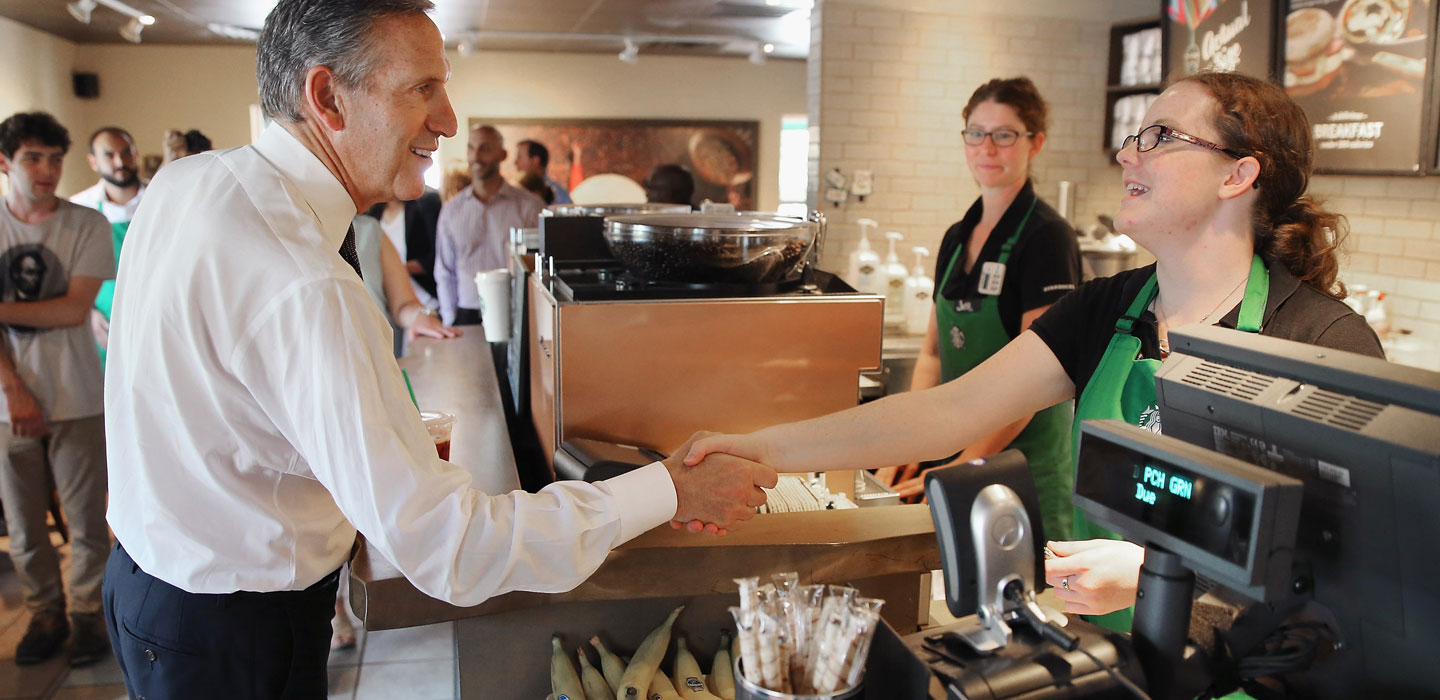The December 3 issue of Barron’s carried an article about Starbucks Chairman and CEO Howard Schultz, opining rather grandly that he could be “some kind of high priest, or guru, or java-swilling Gandhi.” Adulatory articles are almost as common for Howard as they were for that other CEO with whom American consumers were on a first-name basis, that person being Steve Jobs.
Personally, I think a comparison between the two is a fair one, even if the stock valuations aren’t precisely parallel.
This particular article about Howard came with the oft-repeated biographical round-up – poor Jewish boy from the projects in Canarsie, football scholarship to an obscure college in Michigan, sales job with Xerox and the U.S. housewares division of Hammarplast, sales call on four-store coffee beans and brewers purveyor Starbucks in Seattle, instant affinity for the coffee culture, job as Starbucks director of marketing, trip to Italy, epiphany about the cafe experience, Starbucks buy-out and – fast-forward to today – the most ubiquitous coffee chain in the world, with 18,000 stores in 61 countries and an army of “associates” whose health coverage is included in their benefits.
If you’re looking for business folklore that rivals that of Jobs’, this has to be it.
The question I find interesting to contemplate is this: how central to the Starbucks brand is the Howard Schultz persona? Or to put it another way, where would the company be without its charismatic leader?
Now that Steve Jobs is gone, I can’t think of any current company that derives more from the personality of its leader than Starbucks with the possible exception of Berkshire Hathaway and Warren Buffet. I’d mention Richard Branson for Virgin Airways and James Dyson for his eponymous vacuum company, but I don’t think either of those companies have enough consumer visibility to put them in the first rank, and anyway, the guys are Brits.
But in the person of Howard Schultz, we find a unique combination of hipness, intelligence, good taste and friendliness. Aren’t those the very qualities Starbucks would like us to ascribe to the brand itself?
This is a version of authenticity that is well worth noting and, for CEOs who want to break out from the pack, well worth emulating. But the passion, drive and near-maniacal commitment to representing the brand have to come from the inside as they do for Howard.
That’s the thing about authenticity – you can’t fake it.
(In the interest of full disclosure, I should mention that for a few years in the mid-1990s, my wife and I were fairly friendly with Howard and his wife Sheri. It’s a long story that I won’t go into, but I will tell you that on the occasions when we hung out together, I found him a good, proud, engaging, instinctive, impressive man. I wish we had stayed in touch.)





